
Will TU/e students and staff work from home more often after the crisis?
And what are the effects on the human psyche?
A working-from-home advice still applies to most TU/e students and staff. Cursor asked on Instagram and Facebook how people feel about working from home more often after the crisis. The national enthusiasm about this - 26 percent of the people say they want to work from home more often - is also found in the TU/e community. On Instagram, 32 percent of the 246 respondents say they will work from home more often after the crisis. On Facebook 39 percent of the 197 voters shared that opinion. Even though these figures are above the national level, the majority still doesn’t want to work from home more often after the crisis.
"There is a relatively high amount of hours spent at the office at this university: we have a culture of attendance," says Eva Demerouti, professor of Work and Organizational Psychology. “It’s an implicit culture we talk about: the feeling that you will be judged by your absence. But being physically at work doesn't mean your output is better. Now that we are massively forced to work from home, the output continues. So I hope this will change the culture of attendance and the image of working from home. I also hope that mutual trust will increase. Of course, physical contact is and remains important. The need for contact is one of the reasons people come to work. So I don't expect that we will only work from home from now on, but I do expect it will be more common and that the threshold to do so will be lower.”
Before the crisis, Demerouti worked on campus three days a week. "I don't know how many days I will come to campus after the crisis, but my starting point will always be ‘when it is needed'. At least my output will not change. I still coordinate and give feedback, only students see me on their screen now. I have not seen any delays with my students, except that some graduation projects carried out at external companies had to be adjusted due to the corona measures."
Physical disability
Wijnand IJsselsteijn, professor of Cognition and Affect in Human-Technology Interaction, also stresses the importance of physical contact in the workplace. “(Not) being able to properly work from home is partly due to our digital skills. We can get used to it and become more skilled, but it takes more energy than a physical meeting. I notice that I am much more tired at the end of a day of meetings via a screen. I don't get that at the office as quickly. And I also charge by the physical presence of people. The lack of it now almost feels like a handicap. You continuously feel the limitations of meetings and contact, both at work and in your private life. It is also the small things that are important: someone putting a hand on your shoulder, working together in the same room, or messing around on a whiteboard: physical interaction."
The threshold is lower now
Before corona, Professor Kees Storm, head of the research group Theory of Polymers and Soft Matter, already worked from home every Friday. "Now that we are working from home so much, it is becoming more difficult to keep the work-life balance in equilibrium. Both are somewhat intertwined and it is more difficult to switch off." For Storm, it’s not about working from home more often after the crisis, but working from home more efficiently.
“I have always been satisfied with working from home one day a week like I used to and I intend to continue to do so, but the way I do it has become more efficient. And the threshold to occasionally work an extra day from home has also become lower. I always thought "oh but then I have to cancel so many things." That stops you, but now I am more confident that most of it can just continue online, and that I will still have a productive day.”
Study group
Unlike Storm, Built Environment student Tessa Vermeer hardly ever worked from home before the crisis: “I would go to the university because my room is nearby. I have a study group from nine to five at the university where we help each other and where you can easily ask questions. It is also more fun than working alone. This can continue online, but it is different. For example, if you Whatsapp with a question, it can take a long time to get an answer, the whole process is a bit more difficult."
I have no plans to work from home after the corona crisis; the workspace in my student room is less pleasant than at the university
So, after the corona crisis, she has no plans to work from home. "As I said, because I live close by, but also because the workspace in my student room is less pleasant than at the university. These days I spend more time at my parents’ house because of corona. They have more space, better suited for studying. In my own room, I only have a very small desk, one power outlet and no extra monitors. I think a lot of people who responded to the Facebook poll with ‘No, I don't want to work from home more often when corona is over,’ say so because they don't have a suitable workspace at home, which I think is certainly the case for students.” IJsselsteijn recognizes this from his own experience: “I regularly Skype with students and I see them mainly in small spaces or in their parents’ attic with a lack of privacy.”
Self-leadership
Eva Demerouti says working from other locations is no problem for her. "At home or in a cafe, as long as there is Wi-Fi I can work. When I come to the campus, it is for direct contact with people. If I really want to get something done, I prefer to do it at home, because a space with many people present makes it more difficult. Like in Atlas where everything is transparent and you see others and they see you, like a shopping window. That effect was also evident from the research we conducted among users of the Atlas office buildings: people experience more disruptions and interruptions. Especially on the top floors, this is a challenge with such an open space."
However, self-leadership is essential to be able to work from home efficiently, Demerouti says. “Working from home is often still too much associated with having a day off. It may not be equally possible in all professions to see the output when working from home, but in our academic context it should be possible. Especially if you as a scientist are not occupied with activities in the lab, for example. It does take discipline to organize your day in such a way that you do your work and finish it. That’s what I mean by self-leadership.”
You are not having a day off, but at home there is less social pressure from colleagues or from a boss who is/are watching you. You have to do it yourself in the end
In her opinion, however, people in these times of crisis have to take responsibility in many fields. “Not only in terms of work. Take the advice of the government to stay at home as much as possible. In the Netherlands you did not get a fine if you went outside for some relaxation, in many other countries that was the case, or the rules were a lot stricter. In the Netherlands you often have to impose these rules on yourself. Here too, self-leadership applies, just like when you’re working from home. You are not having a day off, but at home there is less social pressure from colleagues or from a boss who is/are watching you. You have to do it yourself in the end.”
Congresses
Besides their educational activities, scientists have more physical obligations that have now been transformed into an online variant, such as national meetings with colleagues or large international congresses. These are now also done from home. Kees Storm traveled to Denver at the beginning of March just before the crisis, to give a speech at the congress of the American Physical Society. When he arrived, he heard that the congress was canceled.
Storm: “I was very disappointed at first, especially because the weeks before it all seemed to go on. But I understand the decision, it was a smart choice to cancel otherwise it could really have become a source of infection. It is also not just any conference, but the largest physics conference worldwide with no fewer than ten thousand visitors. That would have been quite a risk, so many people close together, especially with what we know now about the virus.”
Should such large physical conferences still be organized in the future? And would people still want to or dare to go there? Storm: “We live in a new reality and having a virtual meeting is now easier than ever. We were used to inviting people, having them board the plane, and planning family life around work obligations. Do we really have to? I don’t think so. Of course there are situations in which face-to-face contact is very pleasant, for example with job interviews. But to share scientific knowledge it’s not essential. Our way of sharing knowledge is really going to change. Everyone had to start working online at a very fast pace, you had no choice. Now it also turns out to be very simple and pleasant and people are now well acquainted with the working method. We learn a lot in this crisis.”

Hallways
Storm believes that such a physical visit to a conference is and stays important to network. "At these kinds of conferences you get to know new people during informal moments, such as at lunch or in the hallways. Of course you can send someone a message online specifically to make a connection, but that will never be the same as this organic way of networking. Especially for young researchers, it is much more difficult to build that kind of necessary network if they can’t do it the organic way."
Tessa Vermeer also sees the benefits of traveling less. “Working from home is more attractive for staff and students who live further away from TU/e. Especially on the days you only have one appointment. For example the contact with the student mentor. They sometimes receive emails from students with the question ‘Do I have to come, because this is my only meeting today?’ Then the answer is ‘yes’, because those meetings are mandatory. It will help students who live further away if those kind of meetings can be attended online in the future. Now all meetings have to be done online, which should make people think: a physical meeting is not really necessary, it can also be done online. Even after corona.”
Changing roles
The question remains what effect(s) the intensive working from home can have on the human psyche. Professor Wijnand IJsselsteijn lists a few: "Difficulties to switch off from work, a lack of physical contact, the continuous changing of roles and even identity problems." But if we adjust our expectations, we can temper those effects, IJsselsteijn thinks. “The government of Canada quickly issued some proper guidelines on how to work from home. Principle one: "You are not working from home, you are at your home, during a crisis, trying to work."
According to IJsselsteijn, it is not only a practical and social issue, "it is also one of identity. People derive their identity partly from their work: from the locations they visit and the different roles they play there. When I do my shopping, I am a customer, if I pick up my children from school or make lunch for them, I am a father. When I am on the train, I am a traveler, and when I am at my workplace in Atlas, I am a professor."
According to him, a person's identity is therefore partly linked to certain places; for example, a student feels more like a student when he or she is in the university area. "There is a nice statement from Winston Churchill that illustrates this perfectly," IJsselsteijn says. "After a German bombing in 1943, which hit the Commons Chamber of parliament, he argued for immediate rebuilding and restoration to its former glory. His argument: "We shape our buildings and thereafter they shape us."
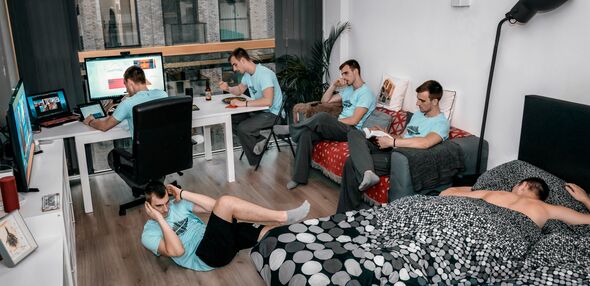
Mixing identities
Now that we are working from home, our identities are also constantly mixing and the boundaries between them are blurring, IJsselsteijn says. "I think it is strange to have to switch from an appraisal to a question from my son without any transition period. That is not only a different topic, but then I am also in a completely different role."
He doesn't think that the effects of working from home on the human psyche are different for men or women, or for young versus old. “Of course, there will always be individual differences, but I don't expect them based on gender or age. Mental resilience does play a role, and the ability to access the right resources - both physical and social. And some people will find working from home easier and more fun than others."
According to him, the continuous threat of the virus also causes an increased stress level in people. "Distance measures give many people an uncanny feeling. Those who easily experience stress will have a harder time in this situation. People who can frame the situation more positively are able to deal with it better. They see this time as an opportunity to finish some odd jobs for example. Or to carry out good intentions, or learning new skills. It is also more difficult for people who are alone and have a small social circle, who feel even more on their own. Your social network, both in size and quality, is also important for your mental health.”
The informal contact with others, such as students having a drink at the study association or while going out or working in a cafe, was also missed for many weeks. Now it is slowly coming back again. IJsselsteijn: “Some miss it more than others. What about your resilience to deal with that? From research into happiness, we know that serious things can happen in a person's life, but that the level of happiness can return to the old level over time. What we mainly see in determining the feeling of happiness is that we compare ourselves to others: if the neighbors are better off than we are, this is a reason to feel less happy. For example, if your neighbor wins the postal code lottery and you did not participate. It is more about the feeling of comparison than about how you are really doing. Corona is the great equalizer in that case; to some extent we are all in the same boat and we can all get sick.”

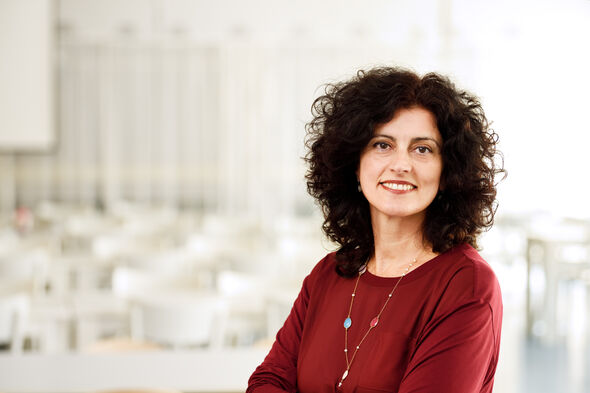
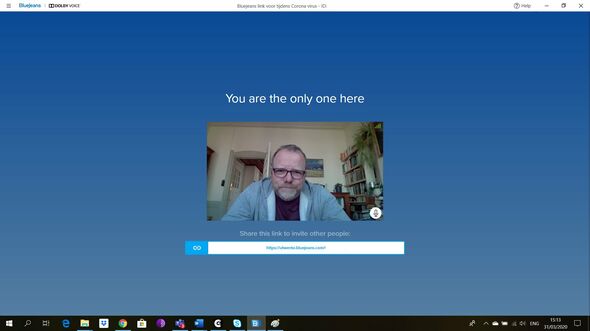
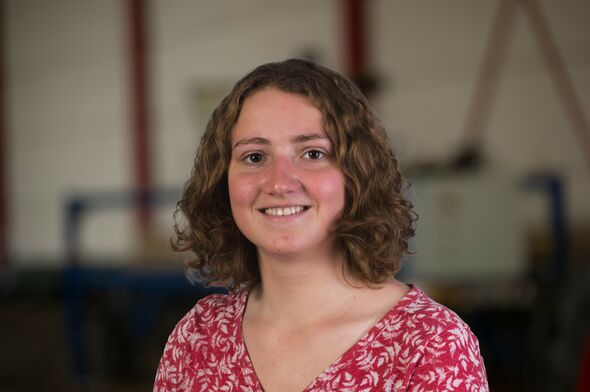
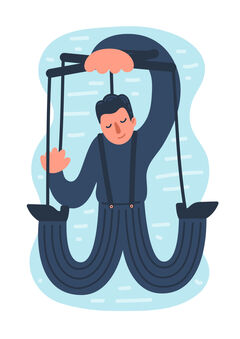
Discussion